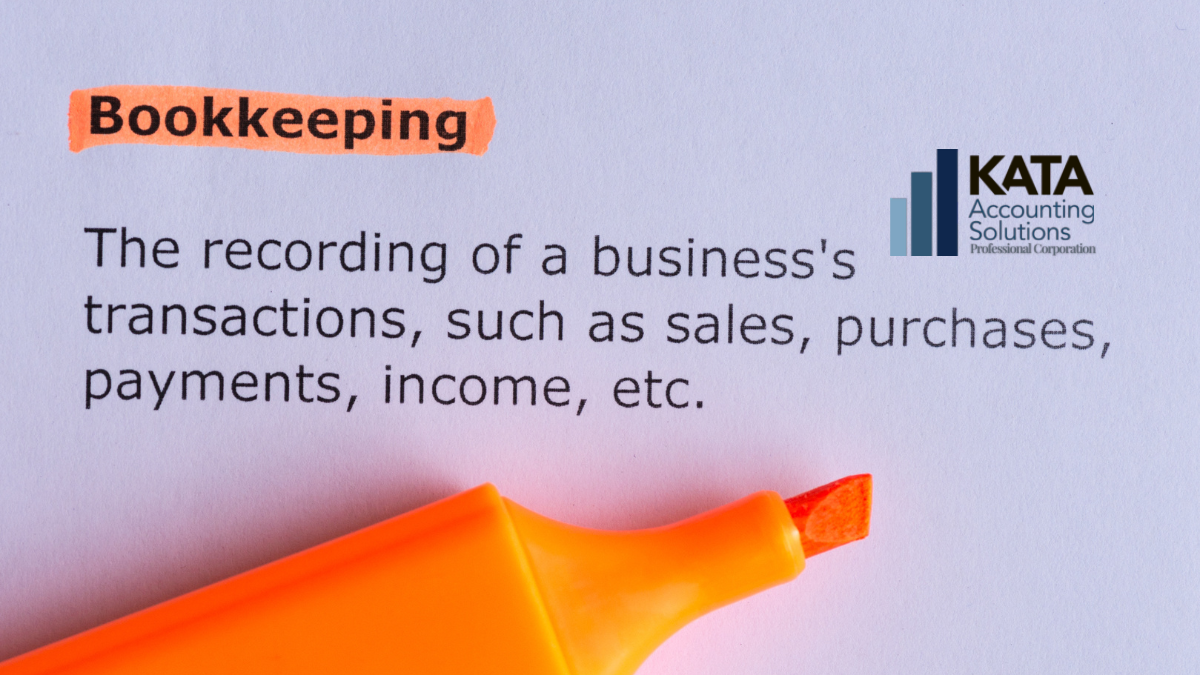Bookkeepers and accountants; all the same, right?
Guest blog by Tanya Hilts, CPB, AIA, Cloud Accounting Technology Specialist, President, Cloud Business Services
While accountants are generally known to be experts in analyzing financial data, it may not be widely known that bookkeepers can now have the resources and confidence to do this as well.
Where this may differ is that accountants are more likely to look at the 50,000-foot view.
Bookkeepers, on the other hand, naturally see the details with a microscope. This is largely due to what bookkeepers do on a day-to-day basis.
Many accountants still see bookkeeping as data entry. This could not be further from the truth. To enter the data, you do not need to understand the data. Modern bookkeepers understand the data and the impact it will have. Further, they constantly learn about tools to make their and clients’ lives easier. Often, they know more about the tools and how they function than accountants do.
By nature, bookkeepers review each individual transaction for different items. We are looking for the correct categorization of transactions and government compliance. This could include GST/HST, PST, and other excise taxes in Canada. Suppose the company is eligible to claim input tax credits. In that case, bookkeepers ensure that the tax was calculated and charged correctly and that the supplier is eligible to charge GST/HST and has a current GST/HST registration number. These are details an accountant will not look at during year-end.
Good bookkeepers also look for specific red flags to ensure no tax fraud or evasion is occurring, whether intentional or not. There are additional pieces of information that the government will be looking for in the case of a review or audit, so bookkeepers ensure that these questions are answered before the review or audit. A good bookkeeper helps you keep good books and records – a business legal requirement.
A good bookkeeper can also be an expert in specific bookkeeping technology, while many accountants still work with excel spreadsheets. It is commonplace that accountants are not familiar with bookkeeping technology. The reason for this is simple. There are many software options available these days. Too many for anyone to know all of them thoroughly. This is where you often find a good bookkeeper has more knowledge than the accountant. The bookkeeper works with the software daily and pulls reports to provide to the business managers and accountant in excel. Using this format, the accountant can import their own software for their 50,000 feet view if necessary.
The accountants may not realize that when providing annual adjusting journal entries, the bookkeeper needs to translate these entries into a format the software will accept. Dealing with different software is like knowing different languages.
This is where a good bookkeeper can do a great job analyzing financial information. A good bookkeeper knows what is happening with the business because they regularly work with the business managers and the books.
Accountants often avoid running payroll. Payroll is a whole area that the bookkeeper tends to know better for the specific client. The bookkeeper relies on the daily details and knows the specifics of the business. Regional differences, such as stat holiday pay, overtime pay and vacation pay, can all be impacted by the number of hours or days an employee worked that week. Employment standards, as do worker’s compensation requirements, also differ from province to province. Bookkeepers need to know what applies to the business they’re working with and how to keep it compliant.
Modern bookkeepers are niching more than ever, while accountants tend to be generalists. A bookkeeper specializing in a specific industry may know more about it than the accountant. The reason for this is simple. As bookkeepers deal with the day-to-day, they must have the knowledge regarding the processes of the business and industry. By niching, bookkeepers can gain a deeper understanding and help the business owners optimize their processes for maximum efficiency.
For example, an accountant who mainly works with retail businesses may not be as familiar with the bookkeeping practices, import/export issues and excise tax issues that a manufacturing business encounters. This lack of familiarity could affect their understanding of how specific transactions need to be recorded and the needs of the business. This could potentially lead to errors or inaccuracies in the accountant’s analysis.
This is not to dimmish the accountant. The accountant is much better at looking at the 50,000 feet view than the bookkeeper. They also see things differently and act as a second pair of eyes. They may understand the overall tax situation in more detail. They look at things from a topical view while the bookkeeper looks through the forest and the items on the ground. With this in mind, having a financial support team with a good bookkeeper and accountant who have your back is best.
